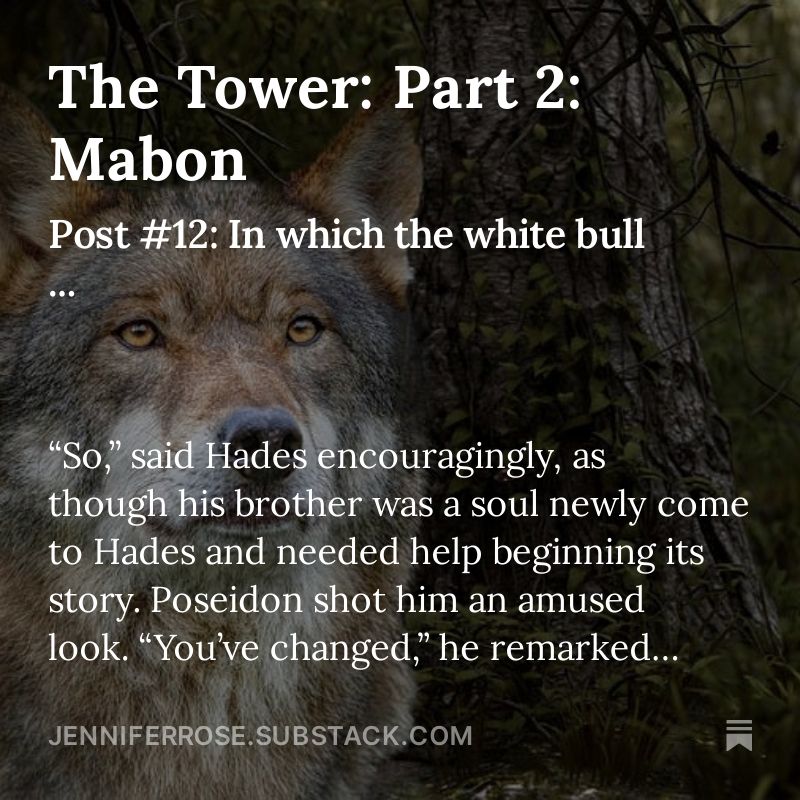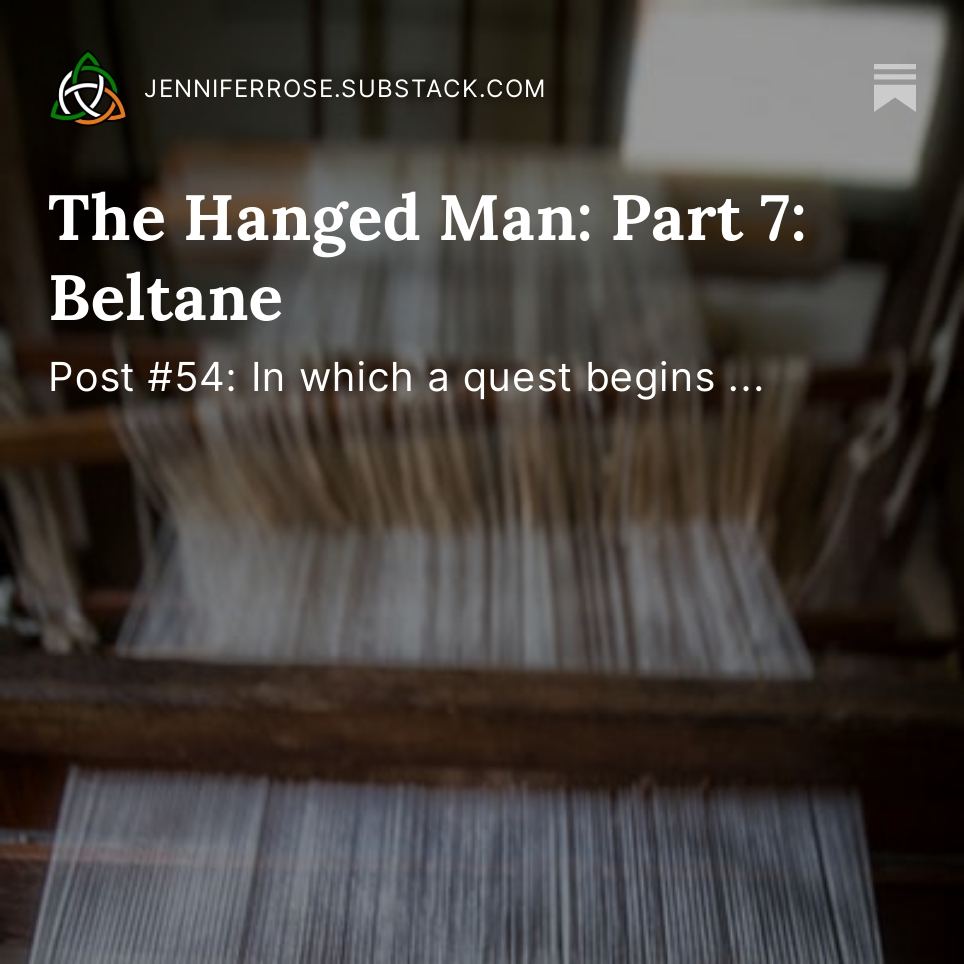by Jenny Rose | Mar 30, 2024 | A Flourishing Woman, Self-Love
When I wrote about internal locked rooms earlier in the month, I had no idea how much there would be to unpack. In subsequent discussions about locked rooms and unconditional love (for a connect-the-dots map go here) a friend tells me she believes trusting herself is the biggest barrier for her in unconditionally loving herself. Me being me, I asked her how we define trust. In asking her I asked myself.

Photo by Jonathan Simcoe on Unsplash
Here we go again.
Trust is defined by Online Oxford Dictionary as “firm belief in the reliability, truth, ability, or strength of someone or something.”
Trust is a tricky subject for me and I’ve so far avoided taking it head on, but this feels like the right time. Part of my hesitation to talk about it is my own identity as a person who doesn’t trust easily.
I feel that piece of identity as a shameful aspect of my character. As I write this, I have a vivid childhood memory of being in the back of a dim car in a blinding snowstorm feeling scared. An adult in the car was also fearful, as were the family dogs. The driver asked me, “What’s the matter, don’t you trust me?”
The answer clamored inside the car, “NO!” For a moment it seemed to me we’d all shouted it, though nobody said a word and I huddled, frozen with fear and not daring to speak, in my corner.
It’s bad not to trust; disloyal, unloving, unnatural. But I learned very young trusting those around me was dangerous. All my life I’ve been torn between my shame about not trusting and a determination to survive and learn to self-defend … which sometimes (often?) means not trusting.
I don’t see trust as a black-and-white belief. I might trust someone completely with money and business affairs, but not at all as a confidant. I might trust someone as a parent but not as a dog walker. I might trust someone’s essential goodness but not their reliability in following through on plans.
This question of trusting ourselves, though, is slightly different. What does it mean, exactly, to not trust ourselves? What do I mean when I say it to myself?
Trust is defined as a belief, and beliefs can and do change. Belief is a choice. My belief that I’m untrustworthy is not something I was born with, but something I internalized from my family. I’m untrustworthy because I’m dramatic, I struggle with math story problems, I have needs and feelings, I’m intuitive, I’m sensitive, I have boundaries, I challenge authority and rules, and I tell the truth, among many other reasons.
Internalized voices are a bitch, because we don’t realize or remember they came from someone outside us.
And people outside us lie. People outside us can never fully see what’s inside us. People have agendas, their own wounds and trauma, and navigate around their own internalized bullshit.

Photo by Cristian Newman on Unsplash
People outside us are not necessarily reliable sources about our worth and value as a human being.
If trust is a “firm belief in the reliability, truth, ability, or strength of someone or something,” we have specifics we can explore.
Reliability: I know myself to be reliable. I have many flaws, but my integrity is strong and I keep my word to myself.
Truth: A thorny aspect of trust. I wrote two paragraphs here about the ways in which others perceive my truthfulness. On edit, I realized none of that has to do with my truthfulness with myself, which will always be invisible to the outside world. Do I trust my truthfulness with myself? Yes. Absolutely.
Ability: This is my weakest area of self-trust. In some ways. At some times. I wrestle every day with imposter syndrome. On the other hand, I absolutely trust my ability to write, to teach, to swim, to dance, and to do many other things. Oddly, though I trust my ability in most cases, I don’t want others to trust my ability because I have a huge fear of disappointing people. This, too, is an old wound, first opened when I received constant messaging about how disappointing and inadequate I was as a child. Because of that, I don’t want people to rely on me for fear I’ll let them down, not from my perspective, but from theirs.
I told you trust was tricky for me.
Strength: Which brings me to strength. This, for me, is a no-brainer. I have absolute belief in my own strength. God knows I wouldn’t be sitting here at the keyboard typing if I hadn’t been strong all my life.
Given this mostly positive review of the components of this definition of trust, what’s the problem? Why have I so consistently mistrusted myself during my lifetime?
I can easily come up with two reasons. There may be more lurking in the background, but these two are in front: One is trust in my physical body, and the other is perfectionism.
Perfectionism is one of the first things I wrote about on this blog. It’s another piece from my childhood I’ve struggled with it all my life, and I’m certainly not the only one. I’m conscious of it now, which is helpful, but it affects every day of my life and if I’m not mindful it rules me. Publishing this blog was one of my first real efforts at resistance. It took more than a year of weekly publishing to stop feeling panic as I pushed the “publish” button after a reasonable amount of writing and editing.
Even as perfectionism drives me, I’m aware enough to know I can’t define it beyond pleasing people. Which is impossible, and I know that. Yet the internal pressure to be perfect seems to be inescapable.
I’ve also written extensively about expectations. As a child, I was expected to be perfect according to conflicting expectations from three adults on whom I was dependent. Needless to say I failed to please any of them, which meant I lived in a constant state of shame and fear of abandonment. A perfect setup for internalized self-loathing. The road from self-loathing to considering unconditional self-love has been an amazing journey.
I was aware, as I explored ability, reliability, truth, and strength above, of a little voice in my head saying, “Yes, but—,” a precursor to the time I was late, or forgot an appointment, or the occasions I did deliberately lie, or the times I felt weak, or when my ability did not live up to my own unconscious standards of perfectionism.
As I became aware of this, I realized I will never trust myself if I aspire to be perfect in these four categories. I have never been perfect, I am not perfect, I never will be perfect, and I’m not much interested at this point in my life in attaining perfection in any way.
So fuck off, perfectionism. I’m not your bitch anymore. AND you will not stop me from loving myself, unconditionally or otherwise. Unconditional love is not built on some ridiculous set of expectations.

Photo by Emma Backer on Unsplash
Which brings me to an interesting insight on my relationship with my body. Let’s not do the body-as-a-political-signal thing, OK? I’m sick of it. We all live in a body. We have baggage about how our bodies look and function. We’re pressured, every day, to try to buy a “better” body, especially children. In today’s world, many of us feel we “should” be different, no matter what we look like. Currently, we’re obsessed with appearance and virtue signaling rather than health and function.
I don’t hate my body. However, due to autoimmune issues and years of chronic pain, I haven’t trusted it. Until the last ten years or so, since I’ve gone carnivore, my physical state was extremely limiting; I was unable to engage fully in activities I loved, get regular exercise, or even reliably manage the activities of daily living without severe pain.
Now I have my inflammation under control, my chronic pain is gone, and I’m able to joyfully live the kind of active lifestyle I’ve always wanted: gardening, walking, swimming, water aerobics, free weights, stretching, a little yoga, a little Pilates, a little time in the gym. I’m healthier and more active than I’ve ever been, but I am aging, and as I age, my body is changing. (Big surprise, I know!) I noticed, in my post about unconditional self-love, some of the things I wrote about unconditionally loving were physical things. In this culture, nobody tells us to love our varicose veins, or our age-spotted hands, or our lined neck. Instead, we’re encouraged to buy something and “fix” all those problems, or at least hide them.
That’s not unconditional love. (I also deny it’s “body positivity,” but I don’t want to dive into that rabbit hole!)
I know if I push myself too hard my body will hurt. I know if I allow my anxiety to spin out of control I won’t sleep. I know if I eat a whole pizza I will a) have inflammation and pain from the carbs and b) have severe constipation (cheese). I know if I garden for too many hours at a time I’ll be too stiff the next morning to get dressed without sitting down. I know if I spend too many hours in the pool I’ll develop eczema on my elbows and hips.

Photo by Cristian Newman on Unsplash
I ask myself, does all this mean I don’t trust my body? Because it actually sounds like I do trust it to react to my choices in various predictable ways. Is what I’m really saying I don’t trust my body to be a 20-year-old perfect body?
Well …. Yeah. I guess that is what I’m saying. Pretty silly.
My friend doesn’t feel she can unconditionally love herself without trusting herself. She’ll navigate her own path through all this. My own conclusion is I can trust myself. Perhaps I should consciously start doing so. (What an idea!) For me, lack of self-trust is not an obstacle to unconditional love, but it certainly makes a nice contribution to it.
Questions:
- Do you see trust as essential to unconditional love?
- Do you agree with this definition of trust? If not, how would you define it? Can you find a better definition?
- What aspect of trust in this definition do you struggle with the most?
Leave a comment below!
To read my fiction, serially published free every week, go here: 
by Jenny Rose | Jan 7, 2023 | A Flourishing Woman, Mind
Regular readers will know I struggle with money. The first time I wrote about it was here. About three months ago, I came across a creative prompt suggesting inviting Money to dinner and seeing what happened. I wanted to engage with it. I didn’t want to engage with it. I didn’t delete the article. It’s been sitting in the bottom of my Inbox sneering at me all these weeks. Finally, I decided to play with it …
I’ve unwillingly invited Money to lunch. She suggested it three months ago because she wants to see my new house. I’ve avoided it, tried not to think about it, even forgotten about it for days at a time, allowing the layers of my life to gently cover it, but then it shows up again, a small piece of grit in my psyche.
Finally I’ve reached a point where I’m ready to get it over with. She’s not going to get tired of waiting for me. She wants to see my new home, and she wants to have lunch. I can’t deal with the silent demand and the weight of her expectations any longer.
After all, it’s only a lunch, right? Two hours at the most.
Having made up my mind, I decide what will work best for me. I feel resentful, railroaded into doing something I don’t want to do. Why can’t I just say no and feel okay about it? Why do I feel I have to do this? I hate the feeling of being pushed, being badgered, being emotionally manipulated. Most of all, I hate how much I care about what she thinks. I hate my fear of her judgement.

Photo by Gemma Evans on Unsplash
I don’t want to do this. I really, really don’t want to do this.
But I feel I have to. I can’t possibly tell the truth. It’s lunch, for God’s sake. Why do I make such a big drama out of everything? What’s with the dread? Why can’t I just be a normal person, get it over with?
I eat alone, so my round, glass-topped table is small and there’s only one chair. I’ll bring another chair in. Which would be most comfortable for Money? She’s a small person. The second chair is an antique, but it’s not as sturdy or large as the one I always sit in. Would it be a subtle compliment to give her that chair, or is it too old-fashioned to be comfortable and welcoming?
I can’t put flowers on the table because the cats will destroy them.
I have cloth napkins that match the tablecloth I’m using; that’s good. That looks nice.
My kitchen, where the table is, needs work. We haven’t been in this house long. The kitchen is outdated and battered, the formica countertops stained and pitted. The stainless steel sink has old drips of paint in it I can’t scrub away and haven’t taken the time to tackle more resolutely. The refrigerator is too big and partially blocks the pocket door into the bathroom. The litterboxes are tucked under a bench along one wall near the door leading to the entry; I don’t yet have a good place to set up the cats. Their food and water are on a boot tray on the floor in the kitchen. The floor is lovely old pine with wide boards, scratched, scarred, stained.
I try and fail to see my home, my kitchen, my kitchen table, through another’s eyes. It so clearly needs work, but, to my shame, I don’t have the money to get the work done. I may never have the money to get the work done. Yet I’m grateful to have a roof over my head, and this lovely old house as a refuge from the world. I love it. I don’t want to have to defend it or feel ashamed I can’t give it the care it needs right now. It’s clean, at least.

New Home, May 2022
Since this invitation was not my idea, and Money is not a friend, I don’t feel I must make a meal. I basically eat meat and high-quality animal fat. I don’t have the time, skill, or money to make an elaborate meal. I’m afraid to make something simple, like a big beef stew. Whatever I do, I’ll feel it’s not good enough. We agree, Money and I, to get a to-go order from a local restaurant. That way, if she’s disappointed, it’s got nothing to do with me. I make sure to insist I pay for my own order. I don’t want any favors from her.
I know the cats are going to be on the kitchen counter, in the sink, walking across the stovetop. It’s what they do. There’s no way to keep them off the counters. Believe me, I’ve tried it all. One of them will probably choose the time we’re sitting a few feet away to have a big, stinky BM in one of the litter boxes with lots of noisy scraping and covering while we’re eating. Then they’ll jump out, scattering litter across the floor, come into the living room adjacent to the kitchen, and scoot their dirty bottom across the carpet and try to cover that. I’m mortified, just thinking about it. Do I pretend it’s not happening, like when you’re talking to a cute guy and your leashed dog squats to take a dump? Do I get up from the meal, scoop out the litter box, spray the scoot mark with stain remover and sponge it away while it’s still fresh and visible? I can keep them off the table, at least, while we’re sitting there eating. But there might be cat hairs.
Who am I kidding? There will definitely be cat hairs.
What will we talk about? That one is not so hard. I’m good at drawing people out. Most people love talking about themselves. A few good questions can get the ball rolling and I can stay safely concealed.
When Money arrives, I greet her at the door, hoping she doesn’t notice the rotted sill and threshold, the damaged door frame, and the fact that the outside door has gaps underneath it large enough to admit a squirrel in search of winter housing. I take her through the lovely, shabby, wood-lined sun porch, another door that has clearly been kicked in at some point, and into a narrow little hallway leading to the kitchen door. Everything is clean, swept, mopped, scrubbed. I give Money the tour of my living space. The cats come to investigate. (Does Money even like cats? I don’t know. I don’t want to know in case the answer is no. If she doesn’t like cats, one is sure to jump in her lap.)

Izzy & Ozzy; Fall, 2020
Money has picked up our order. I gather cutlery, plates, glasses. We sit down to eat. I am nervous, tense. The last thing I want to do is eat, but I do. I ask a couple of questions to get her talking and we chat in between bites. I wait for the curled lip, the sneer hidden within polite words, the fleeting contemptuous expression on Money’s face I know will be coming.
Money’s fingernails are unpainted. She’s wearing plain gold hoops in her ears. She’s dressed in unmatched leggings and a sweater. No makeup. I realize I expected something quite different …
And then my flow dried up and I came to a sudden stop, realizing I expected, in fact, my late maternal grandmother, who was always made up, bejeweled, well-coiffed, and wore little designer or custom-tailored (in Hong Kong) skirts and jackets and high heels. I expected her gold watch, expensive perfume, perfect manicure, and big, heavy rings. I expected her vivacious social cocktail chatter (gold monogrammed cocktail napkins). I expected her small brown eyes to turn mean, to tell me to act like a lady, to use my napkin, to keep my knees together. I expected the Jekyll-and-Hyde experience of watching her flirt, even when well into her 80s, and smile, and bat her nearly denuded eyelashes, still thick with mascara, with every male in the room and then the sharp little knife buried in a smiling comment or an aside about my looks, my conversation, my choices, and my behavior.
Gram, as we called her, had money. A lot of it. She was widowed young, inheriting considerable wealth from my grandfather. When her daughter, my mother, was divorced with two young children, Gram financed the family. By which I mean she demanded invoices, receipts, and bills, and gave Mom just enough to cover things and no more. No allowance. No lump sum. Mom had to ask specifically for every penny. Gram made her grovel. It was an exercise in humiliation. When Gram came to visit she hounded Mom about her marriage (Gram hated my father), her divorce, her stupidity and bad judgement. Mom went back to school to get a degree in order to get a job and support her children. We became latch key kids. I was assigned to care for my younger brother; we both were assigned to care for the animals, though the horses were sold during the divorce, taking the core of Mom’s happiness with them and leaving only bitterness and grief behind.

Photo by Hailey Kean on Unsplash
Every night, after I went to bed, I listened to Mom cry while she sat at her desk in her bedroom down the hall and dealt with the bills and finances or did coursework. I was often hungry because I felt guilty about eating food Mom would have to ask Gram to help pay for. I was 11 years old. Yet Mom remained loyal, thanking Gram for her grudging support, telling everyone how lucky we were to have her mother, who loved us, to help out. I don’t think she dared do anything else. Mom cared for her mother until the end of her life, when she died in a nursing home in her 90s.
Only one time did Mom break down in front me. “I’ve never pleased that woman one single day in my life,” she sobbed. It was true. She didn’t. And she tried every single damn day. I never pleased Gram a day in my life, either, but I didn’t try. I did not love my grandmother.
That moment of truth was never referred to again. By either of us. I’m sure, had I tried to talk about it later, Mom would have denied saying it. The world, especially her male relatives, saw Gram as charming, entertaining, gregarious, and generous. She could be all those things. But could also be abusive, toxic, selfish, and manipulative. She became (I discover), in my mind, the face and personification of Money. Money weaponized. Money withheld. Money rather than love or true connection. Money as a tool for power, control, and shame.
Every dollar of “help” Gram gave us was, as far as I was concerned, soaked in Mom’s blood and tears.
So, I’ve had a difficult relationship with money. Surprise, surprise. This exercise revealed to me the roots of my self-sabotage and conflicted feelings about “success,” which in my family meant plenty of money. In many ways I feel very successful, but I’ve always struggled financially. The work I’ve done and loved (being a librarian (yes, I have a degree); working with animals, children, the elderly; teaching swimming; lifeguarding; working in the public school system; working in hospitals; storytelling; and medical transcription) are not high-paying jobs in terms of money. The work of my heart, writing, has so far not earned me a single penny. All this contribution, all this creativity, all this love and care for animals and people and books, doesn’t count and is a matter of shame because I haven’t made much money. How sad and messed up is that?
My car is falling to pieces. My house needs work. I buy clothes at thrift stores. I’m a minimalist. I could use more money. I hate to admit it, but it’s true. It would help. A lot. But it wouldn’t fix everything I struggle with in life. I’m clear about that, too. And money is not love or success. Money is a tool, one I’ve mostly refused to consider learning to use. So I haven’t. What’s the point? I don’t have any! I’ll never have any. I don’t want Money to come to lunch because it’s wrong to need it and I do. I’m certain I don’t deserve it, because I’ve failed the family expectations, but I need it. Convoluted. Tricky. My personification of money in this exercise exposes a lifetime of shame about needing money, or any other sort of support or resource, to be honest. Which is ridiculous. Because the less money I have, the more I need it. And the more ashamed I feel. And so on.
At the same time, I’m proud of my contributions to the world. I’ve loved all the jobs I’ve had. I like to work. I like to volunteer. I have no plans to retire. I’ve been richly rewarded for my service in far more important and meaningful ways than monetarily. I’m proud of my self-sufficiency.
But those things won’t pay down the equity loan or fix the car. They won’t pay my bills.
Maybe I’ve never clearly seen Money at all, because I can’t look past my grandmother. Maybe Money doesn’t wear her face, but another I’ve never glimpsed. Maybe it’s time to grow up and out of that old anger and rejection of anything Gram stood for …
So this is the story of when Money came to lunch.
Questions:
- If you imagine an issue or feeling you struggle with as a person, what would that look like? What issue or feeling would you start with?
- What feelings are attached to your experience of money?
- How do you define success?
- What contribution are you most proud of? Is it the one that made the most money?
Leave a comment below!
To read my fiction, serially published free every week, go here:
by Jenny Rose | Apr 2, 2022 | A Flourishing Woman, The Journey
Unless the sky falls (again), we will be moving in less than a week. It’s hard to believe. In fact, it’s impossible to believe, but that’s okay. Today is real, and I know what I need to do right now. The future can take care of itself.
As I moved around the kitchen early this morning, feeding (and tripping over) the cats, making breakfast, heating water for tea, watching the sky lighten, it occurred to me the last seven years in this old farmhouse have taught me a magnificent lesson.

Maine Farmhouse and Barn
When I moved to Maine, I had a solid idea about what I was moving into, a whole set of expectations and dreams, none of which turned out to be real.
The loss of my fantasies was heartbreaking and took me years to process. During that time, I started this blog and later remodeled it, finished my first book, wrote my second, and began my third, started publishing my fiction serially on Substack, put everything I’ve learned about emotional intelligence into action, grew deep roots in my community, found a great job I love, and became part of a second family.
At the same time, I experienced disempowerment in terms of my living space and physical surroundings. Never before have I lived in a place where I had so little power to respond to my needs and preferences, and never have I been so overwhelmed with maintenance tasks I could not take care of.
Because of my emotional intelligence training, my disempowerment was visible to me, and I was able to turn towards what I did have power over, again and again, until it became second nature. It didn’t feel good, but it was invaluable practice in managing my own power, at recognizing my own power.
Always before in my life, I’ve had plans and projects, things I wanted to buy, walls I wanted to paint, the ability to rearrange furniture, make repairs, have new shelves built, and discard what was no longer useful. Such activity gave me a great deal of pleasure and was thoroughly distracting. It was never finished, so I stayed firmly focused on externals.
In this house, that distraction has been unavailable. To stand in my own power has been to stand still with myself, to work internally, to feel my feelings, create, stretch, grow, learn, explore. It’s been lonely. It’s been uncomfortable. It’s been transformative. It’s been internal, invisible, and has nothing to do with a shiny presentation.

Photo by Alex Iby on Unsplash
Most of us would acknowledge real change and healing come from the inside, not from the surface. But understanding that intellectually is not the same as spending years living it. I would never have voluntarily given up the power to manage my surroundings. When I realized it was happening I had a choice to make, and I chose to explore this new, unexpected territory.
That choice is one of the best I’ve ever made.
I have learned a dream home, a dream wardrobe, a dream body, a dream library, is not a life. What others see of me and my possessions and home is not me. My presentation has nothing to do with my state of health, presence, and groundedness.
Our new home is old, though not as old as this farm, and it needs some work. Sure, it needs new exterior paint and other cosmetic help, but that’s not where I’ll start. Those changes are fun and everyone can see and appreciate them, but the invisible, internal issues like plumbing, wiring, and insulation are what will really make a difference to my experience living there.
The looks of the new house are not what matters. It’s the life we create inside it that matters.
The color of my hair doesn’t matter. It’s what’s inside my head that matters.
The clothes I wear don’t matter. It’s the health and peace in my body that matter.
Attaining perfection (and perfect control) of my space is not what matters. It’s the ability to manage my thoughts and feelings, maintain integrity, and live well that matter.
In these last few days of packing, sorting, and endless tasks and details, at every step I’m thinking about what I learned and how grateful I am for the lesson. I didn’t choose to learn it. I wouldn’t have volunteered to learn it. I was forced into it, tricked into it, even.
But that’s not important. My life has consistently taken me exactly where I need to go, in spite of how much I whine and complain about some of the places I’ve been. Now, just ahead, is a whole new chapter.
I wonder what I will learn.
(Next weekend we’re moving, so you won’t see a post here from me. I’ll be back in two weeks!)

Photo by Michal Balog on Unsplash
by Jenny Rose | Feb 12, 2022 | A Flourishing Woman, The Journey
I’ve written before about rewriting our personal narratives. I’m revisiting the idea, this time in terms of rewriting the past.
Pete Walker’s material on complex post-traumatic stress disorder suggests revisiting old traumas remaining in our memory as painful, nonhealing wounds, and rewriting. He talks about it in terms of time travel. One goes back, as an adult, into memories of childhood and enters the scene as a new character, creating a new and different narrative. Our adult selves can defend our child selves, shield them, help them explain themselves, provide comfort to them, and, if needed, remove them before whatever terrible experience occurred.

Photo by Angelina Litvin on Unsplash
Intrigued, I tried this method, and I was shocked, though I know the power of stories, at how well it worked and how much fun it was. Not only has it helped me heal from past trauma, it also strengthens my ability now to automatically stay on my own side and defend myself.
Seth Godin also talks about this concept. His language is “rewriting the script.” Same idea, slightly different presentation. Godin is business oriented, while Walker is psychology oriented.
Godin suggests, instead of saying to ourselves “here we go again,” we simply rewrite the script this time, which means we throw away our expectations and take each experience as a fresh one, rather than another terrible iteration of something in our past.
This is powerful for me as we navigate the process of moving house. I’ve done it more times before than I want to count, and I’ve always found it deeply traumatic, but this time is different. In spite of broken contracts, changing timelines, obstructions and reversals, and the usual financial and physical stresses, I’m managing to stay grounded and balanced. It feels like a rough patch, for sure, but I don’t feel traumatized. I have moments of amusement and even more moments of curiosity. What on earth will happen next? How will this all work out? Where will I be sitting in 6 months?
Old traumas and wounds are just that – old. We don’t have to insist new, similar experiences cut as deeply. It is a choice, although not an obvious one. We could just tear up our old scripts, the ones that hurt us, the ones that never work out for us, the ones filled with fear and heartbreak, and write a new one. Now does not have to be the same as then.
In yet another way to think about this, I came across advice from a writer on how to appreciate one’s progress. She, too, suggested time travel. If we feel stuck and as though we’re making no progress, and never have, and never will, and what person X told us way back when we were children, that we’ll never amount to anything, seems a curse we can never lift, we can sit quietly with ourselves and think back a year, or five, or ten. Stepping back helps us gain perspective and see exactly how far we’ve come, how much we’ve learned, how much we’ve grown. What if we went back, in imagination, to cheer on the self we were a year ago, whispering to them of all the wonderful progress ahead?
Scripts and storylines can be changed. We don’t have to give them our power. It’s so easy to forget that. It takes an act of presence and will to change the script and reclaim our power, but we can let go of our limiting expectations and beliefs and allow ourselves a different kind of experience. Not here we go again, but here’s a new experience – I wonder what will happen?
Sometimes all we need to do is shift our gaze from the hopeless and frightening places where we have no power and focus on the places we do. If we can stay there, rest there, live there, the chaos and tumult, though unpleasant, won’t knock us down and trample us. Such times pass by, pass over without traumatizing us, and we’ll come out on the other side more resilient than ever.

Photo by Leon Liu on Unsplash
by Jenny Rose | Nov 20, 2021 | Connection & Community, Emotional Intelligence
I was cleaning cat hair off our furniture a couple of days ago and thinking about the Golden Rule. I muttered about it, too. To the cats, who had no opinion but thought the whole removing-cat-hair-with-a-dish-glove business highly entertaining and a good game. They wanted the cat hair back. I wanted to get rid of it.

Ozzy 2021
Sometimes I feel I’ve spent my life cleaning.
Don’t get me wrong. Cleaning can be a sacred activity, a Baba Yaga kind of activity. Few things are as satisfying to me as making order out of chaos; sorting the unwanted and unnecessary from the useful and beautiful is something I always enjoy.
On the other hand, cleaning is emotional labor. Physical labor, too.
When I say “I love you,” part of that is a commitment to provide a clean, comfortable, healthy space. Part of my own self-respect and self-love is providing myself a clean, comfortable, healthy space.
It’s not a question of money. Paint is peeling off many surfaces in this house. That doesn’t mean those surfaces need to be dirty. Yes, the floor is pitted, stained and scarred. That doesn’t mean I don’t bother to scrub off the grime. Yes, the front door gaps and sags. The metal screen door is getting rusty. That doesn’t mean they have to be filthy.
So, cleaning. For all of us, myself, my partner, and the cats.
I know some people will say the cats don’t care. My partner has said he doesn’t notice.
But I care. I notice. And I don’t know the cats don’t care. Why should they live in unnecessary squalor?
Anyway. The Golden Rule. Do unto others, etc.
I think the Golden Rule is a good way to live. I live by it. The problem is the rule itself implies others will do unto you as you do unto them.
And that’s simply not true.

Photo by Evan Kirby on Unsplash
It’s like tolerance, or respect, or reciprocity. Treating others by those standards does not mean we’ll receive the same treatment.
I’m angry about that. Living by the Golden Rule is expensive in time, energy, and patience. I choose to do it because it’s part of my integrity as a human being, but it’s not easy, and it’s not an investment that always pays off. Which is sad. And disconnecting.
I’ve asked it before and I ask it again. When have we given enough?
Then I received a post in my Inbox from Joshua Fields Millburn titled ‘The Boundaries of Discontent’ about this very subject. Tolerance, he says “can be a magnet for neglect.”
Amen.
The Golden Rule is an effective guide for choice. I feel good about myself and the way I show up in the world when I employ it. But it’s only the first step.
The second step is observing whether it’s reciprocated in any given situation and continuing to make healthy, self-supportive choices based on that observation.
It’s wonderful to give positive things to the world and others, but we need to notice if we’re not receiving in kind. Giving out of an emotional deficit is not sustainable. We deserve more than that. We can find people who live the Golden Rule, people like us.
Millburn says we encourage what we tolerate, and he’s right. Tolerance is too heavy to carry alone in a relationship, and unbalanced tolerance is simply clutter. When we stop tolerating the absence of reciprocity, or more than a few days of cat hair on the furniture, we can move into a simpler, clearer, cleaner life.
Healthy boundaries are not intolerance.
I don’t want to be the friend who never reciprocates. In fact, I’ve voluntarily left more than one relationship because it was clear that who I am was making others unhappy or uncomfortable and I was unable to find a way forward into something healthier with them. I don’t want toxic people in my life, and I won’t be a toxic person for anyone else, either. Do unto others has sometimes meant letting go and moving on for my sake and theirs.
Tools for healthy relationship and connection like the Golden Rule work best when both parties bear their weight and use them. If that’s not happening, the tool becomes ineffective, even destructive, and the relationship falters.
Do unto others as you would have them do unto you. To a point. But don’t get too carried away. And don’t build expectations of reciprocity around it. Follow it because you believe it’s the right thing to do and let go of the rest.

Photo by Roderico Y. Díaz on Unsplash

















